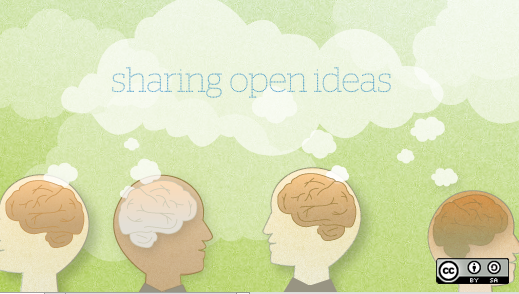In open source software, if you contribute enough patches to the code base, most projects will make you a committer. I guess I shouldn't be surprised then that when you write enough articles for Opensource.com, they give you your own column. In my case, that column will be called Open Founder, and I'm going to use this space to expand on past technical column themes that are near and dear to my heart—open source search, Natural Language Processing (NLP), and machine learning. I'm also going to use this platform to write about the broader open source space from my perspective as a founder of a company in which contributing to open source is a key part of who we are. Additionally, I plan on interviewing and highlighting other people and companies built on open source, with the goal of bringing insight into what it's like not only to consume open source, but to live and breathe it for your livelihood.
To get started, a proper introduction is necessary. In 2007, I co-founded Lucidworks, a company built on and around Apache Lucene and Solr. I'm also the co-creator of the Apache Mahout project and lead author on Taming Text, an open source-based introductory guide to search, machine learning, and NLP.
Like most developers who graduated college in the mid-'90s, my open source story goes back to the early days of using the Apache httpd server, Tomcat, and Jakarta. And while those days were a lot of fun and spent consuming much of the goodness put out by the Apache Software Foundation and other places, I didn't really cut my teeth on contributing to open source until 2004. That's, when I joined the Center for Natural Language Processing at Syracuse University, where I built a cross language search engine between Arabic and English (e.g., enter English queries, get back Arabic documents.)
After the requisite university training, my boss said, "We use Lucene. Go figure it out." And so it began. Lucene at the time was still in its infancy—version 1.2, as compared to the recently released 5.4—and it was missing a few things that I needed (for the search geeks here: term vectors and some language handling bits). After few code patches, a whole lot of emails helping others, participating in discussions (in addition spending time getting to know people), and I was invited to be a committer. The rest, as they say, is history.
Moving forward to 2007, three of us committers and a fourth user of Lucene banded together to form the company now known as Lucidworks, with the goal of being the "Red Hat of Search." Our first company meeting was the first time I actually met one of my co-founders (Erik Hatcher) face-to-face, despite having worked together in the community for several years. That same year, I also co-founded the Mahout project and began pitching my book, Taming Text, to potential publishers.
Over the years, my contributions have evolved from writing code full time to managing a large team of engineers that work on a mix of both open and closed source software. My code contributions to the likes of Lucene and Solr are fewer and farther between, but I still manage to contribute from time to time, in addition to a few open side projects I maintain. Our model as a company has also changed from primarily doing consulting and support to selling an open core data platform that integrates a number of strategic (Solr, Spark) and secondary open source projects, as well as our own value added pieces that layer on top.
My own understanding of open source has also significantly changed as concept of open source has evolved from one of idealism to practicality. Open source has transitioned from a bunch of hackers hidden away in basements preaching the gospel in niche forums, to an international pool of developers collaboratively creating projects in the open.
Although I still believe in many of the ideals of open source, I also know that in order for open source to continue to succeed, there has to be commercial investment and a means for people and companies to earn a living. Where and how that investment is made (for example, via Foundations, "commercial" open source, or individual contributions) and the related business models is rich and fertile ground for discussion, and something we will explore in future columns. For now, thanks for joining me here. I look forward to exploring open source within and beyond the code repositories and the discussion forums.
Do you have ideas for the Open Founder column? Leave a comment or send your suggestions to open@opensource.com.






2 Comments